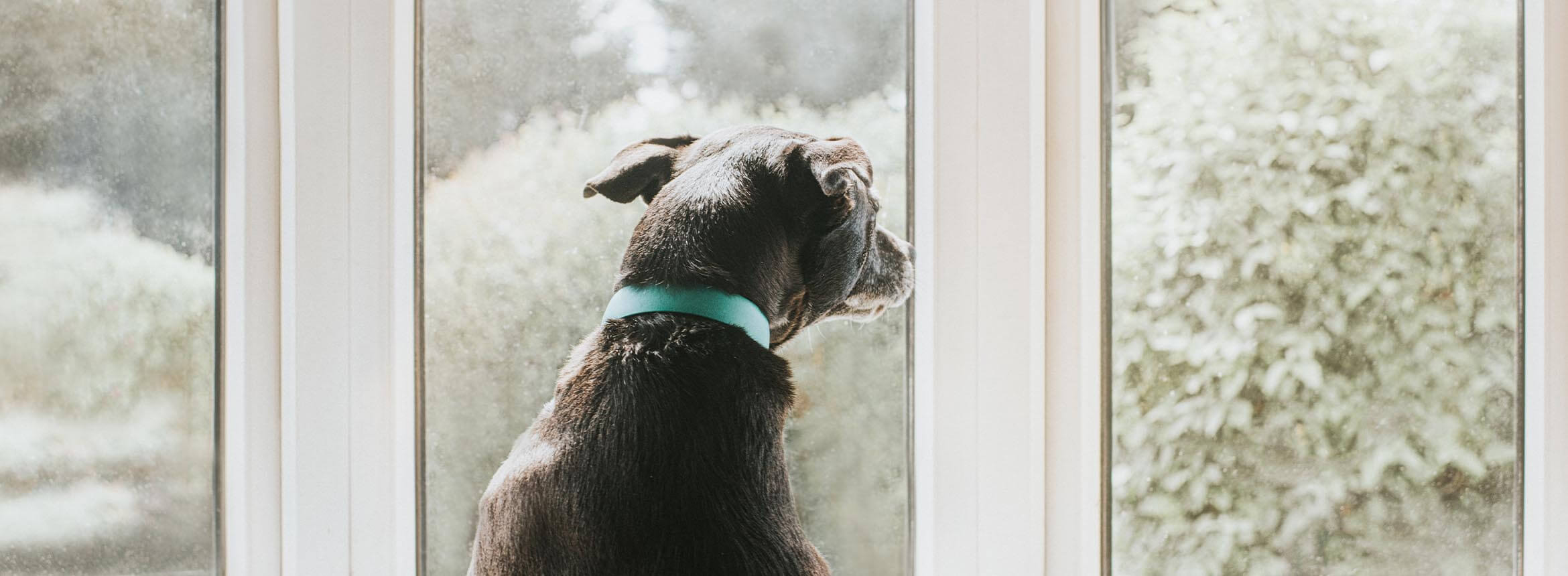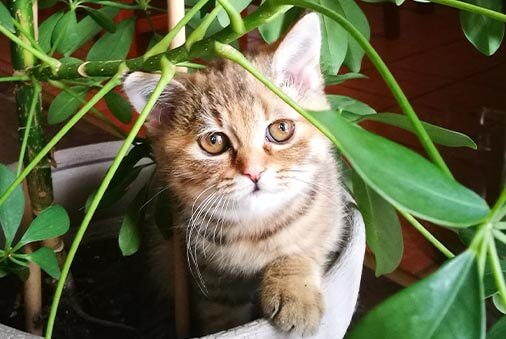If your adult children are Pet Parents, chances are you’ve had their furbabies in your home. Though your granddog or grandcat knows you, they may still suffer from separation anxiety when their Pet Parents leave. Here's how to identify the signs of separation anxiety — and what to do about it.
SIGNS OF SEPARATION ANXIETY
Here’s how to know if your grandpet is overly anxious without their Pet Parents:
Destructive behavior
This includes ripping bedding and toys to shreds, scratching at the door until it splinters, tearing up outdoor fencing to escape, or digging holes in the yard.
Pacing, howling, or crying
Just like nervous humans, anxious dogs and cats will pace around the room when their humans aren’t home. They may also bark, cry, or howl at doors or windows for their Pet Parents.
Trying to escape
Anxious pets will sometimes try to break out of the house or yard to find their families — be alert!
Changes in diet
Your grandpet may stop eating, start begging for food, or start eating poop.
Unhappy accidents
Your normally house-trained granddog may have an accident around the house if they’re upset, and a cat under stress will sometimes relieve themselves outside of the litter box. Your grandpet may also experience GI upset (stress colitis).
MANAGING SEPARATION ANXIETY: THE DO’S AND DON’TS
The key to helping your grandpet survive time away from their Pet Parents is preparation! As long as your grandpet doesn’t have any known behavioral or medical problems that might be causing the above signs and symptoms of anxiety, you can try a few different things to help make things easier.
Do:
- Keep them busy. Use a fillable or puzzle toy and give your grandpet a long-lasting and challenging snack.
- Wear them out. Lots of playtime and exercise will help keep your grandpet occupied and strengthen your bond.
- Stay on track. Your grandpet probably had a routine before their Pet Parents left, so do your best to keep them on their regular schedule if possible.
- Make sure doors and windows are properly shut. Just in case you have an escape artist on your hands.
- Give them a safe space. If your grandpet is crate trained, their crate can be their safe space. If they are not crate trained, give them a place to retreat to where they are contained but not confined (and where they won’t do too much damage if they panic).
Don’t:
- Scold or punish. It can be frustrating when pets are uncooperative or destructive. Remember your grandpet isn’t being bad on purpose, and punishments can often make the situation worse. Give them some patience and love while they learn that it’s okay for their parent to leave.&
- Confine them to their crate if not crate trained. A grandpet will not associate their crate as a safe space. They may be anxious and there’s a greater likelihood of injury if they try to escape.
- Make leaving a big deal. If you need to leave the house, keep your exit calm and quiet — the calmer you are, the more it will help your grandpet!
The best way to help relieve a grandpet’s separation anxiety is with time and practice. Consider doing a few test runs before the main leave-taking so the whole family can feel more comfortable with the arrangement – grand-Pet Parents, Pet Parents, and grand-furbabies alike!



